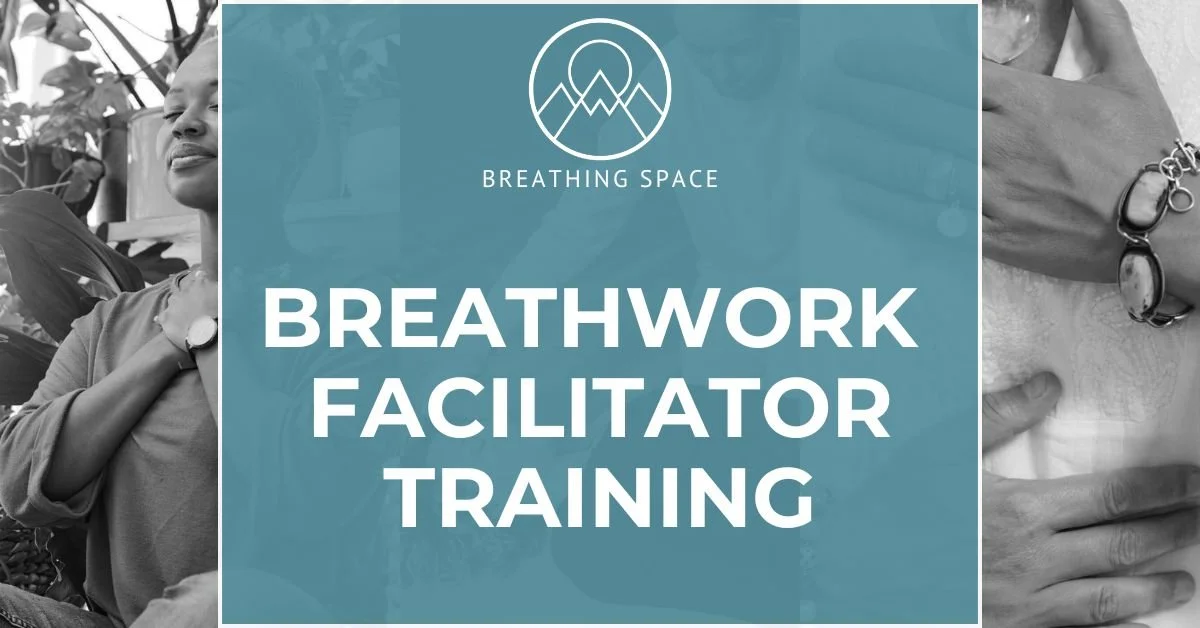
Breathwork Knowledge Hub
In-depth articles exploring breathwork, the nervous system, breathwork techniques, and ethical practice.
Explore by Category
Start here if you’re new to breathwork or want to build a grounded understanding of the basics.
Practical breathing guides you can use for regulation, focus, rest, and everyday support.
Clear, accessible explanations of how breathwork affects the nervous system, brain, and body.
Guidance on safety, consent, pacing, and nervous system awareness in breathwork practice.
Support for those who want to train, or who already have, including pathways, ethics, scope, and integration.
Search the Breathwork Knowledge Hub
Looking for something specific?
Search by topic, technique, experience, or question, such as anxiety, the nervous system, vagus nerve, safety, or breathwork training, to explore relevant articles across the library.
Breathing Space Breathwork Articles
Making the Most of Your Online Breathwork Course
The world of learning has changed dramatically in recent years. Remember those pre-pandemic days when in-person workshops and courses were the norm?
Well, COVID-19 shook things up, pushing a lot of learning online. And while this opened up amazing opportunities for accessibility and flexibility, it also created a whole new landscape to navigate.
Let's face it, online learning can be a bit of a challenge. Technical glitches, distractions at home, and the lack of in-person connection can all make it tricky to stay focused and engaged. And if you're not particularly tech-savvy, the whole experience can feel a bit overwhelming.
I Knew at That Moment I Was Meant to Teach This.
What brought me here? I feel this can be such a loaded question…Where do I start.
Well to really tell why I am here, I need to give you some back story to my life. In a nutshell, how I found breathwork was by having a lot of events happen in my life, that I didn’t know how to deal with.
This all came to a head about 5 years ago, when I started going though a divorce from the father of my children.
Choosing the Best Online Breathwork Course
Breathwork's popularity has skyrocketed in recent years, and it seems like everyone's offering an online course these days. While it's wonderful to see this ancient practice gaining recognition, the sheer number of options can be overwhelming. With so many courses vying for your attention, it can be hard to know where to start.
How do you choose a course that's right for you? One that aligns with your goals, learning style, and budget? One that's led by a qualified facilitator who understands the nuances of breathwork and can guide you safely on your journey?
Trauma Informed Breathwork Training
Breathwork is having a moment. Its transformative potential is undeniable, and more and more people are seeking its benefits for stress relief, emotional healing, and personal growth. As the demand for breathwork facilitators grows, so does the responsibility to ensure that these powerful practices are held in a safe and supportive container.
This is where trauma-informed training comes in. It's not just about working with individuals who have experienced trauma; it's about creating a space where everyone feels safe, empowered, and respected, regardless of their background or experiences.
Breathwork vs. Meditation
Breathwork is gaining more and more traction these days, popping up in wellness circles and social media feeds everywhere. But for many, the idea of deep, intentional breathing as a pathway to inner peace might still seem a bit unconventional. After all, isn't meditation – the practice of sitting in quiet contemplation for months or even years – the only real way to achieve lasting transformation?
Even Breathing Space founder Benedict Beaumont, who dedicated years to studying Buddhism and decades to meditation, discovered that, for him, a single breathwork session could unlock more self-discovery and healing than years on the cushion.
Breathwork and Heart Rate Variability (HRV)
I recently got a new Fitbit, excited about all the fancy health metrics it could track. Steps, sleep, heart rate – the usual suspects. But one metric caught my eye: HRV, or Heart Rate Variability. I'd heard it mentioned in passing but never really paid much attention to it. Curiosity piqued, I checked my score... and was shocked. It was alarmingly low, more in line with someone in their 70s or 80s, not a relatively healthy individual in their early 40s.
This sent me down a bit of a rabbit hole of research. What exactly was HRV? What did it measure, and more importantly, what did my dismal score mean for my health? The more I learned, the more fascinated I became.
Breathwork for Relaxation
My mind is constantly buzzing with ideas, to-do lists, and thinking 3 steps ahead. It seems like I always need to be doing something, or better yet, multiple things at once. Sound familiar? I’m the sort of person who tries to multi-task relaxation. I know I'm not alone in this struggle.
If you're nodding your head in agreement, then this blog post is for you. Because even though relaxation may feel elusive, there's a simple yet powerful tool that's always available to us: our breath.
Breath-Body Connection
I recently came across a comment online that said "nervous system regulation is just new-age bullshit." As both a nurse and a breathwork business owner it got my back up and it got me thinking about how much we underestimate the power of our own breath and our ability to influence our body.
The truth is, our breath and our bodies are deeply connected. It's not just about staying alive; it's about how we feel, think, and experience the world. Our breath is a mirror reflecting our inner state, and it's also a bridge connecting our mind and body.













